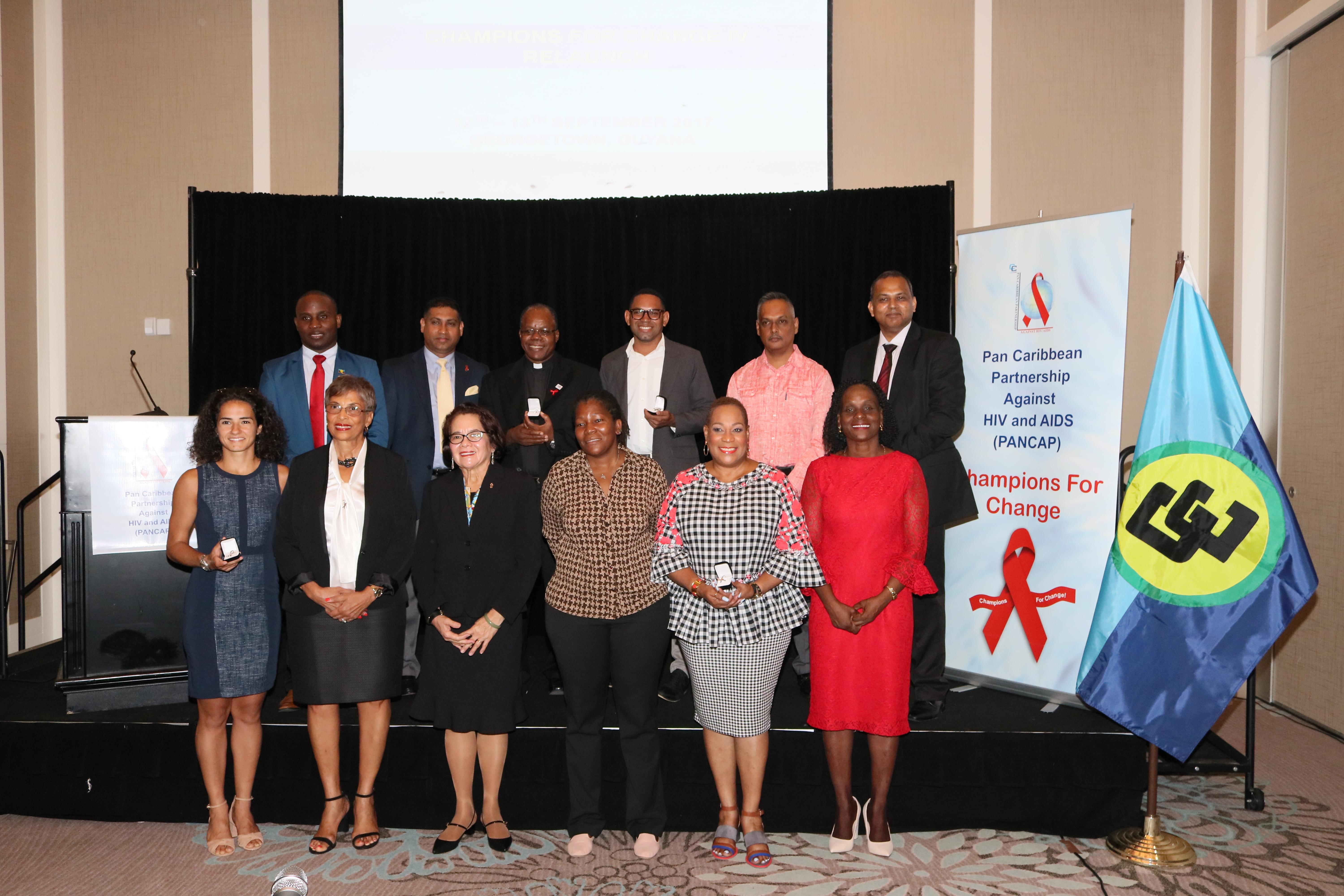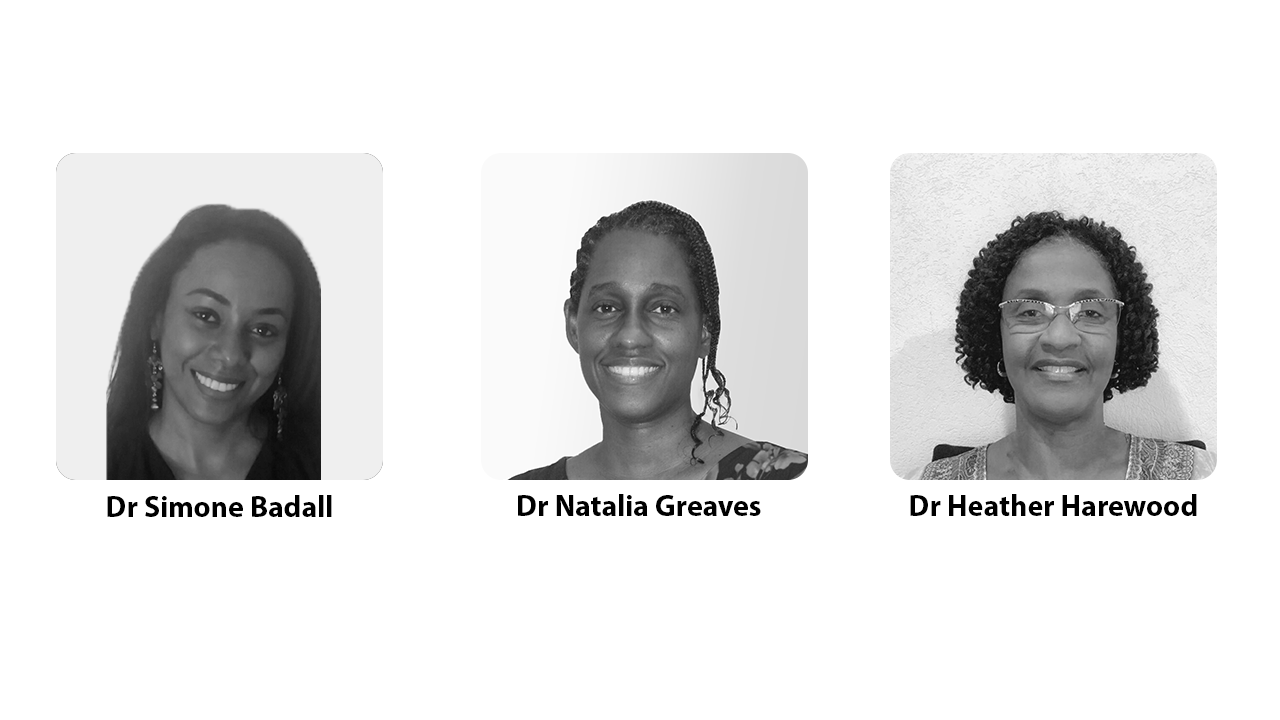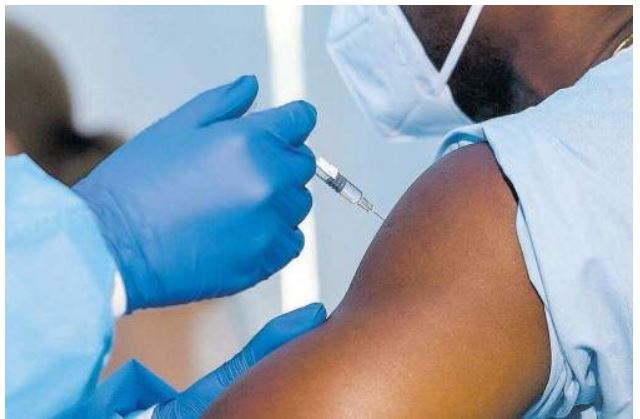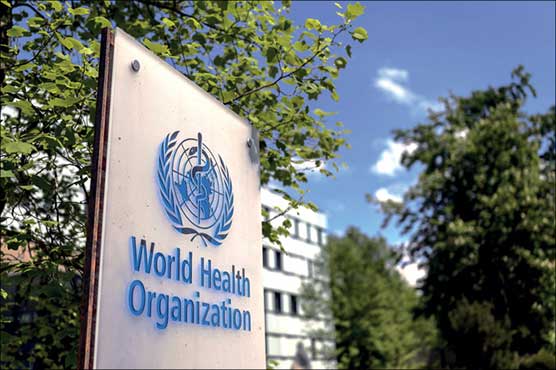The Pan Caribbean Partnership against HIV and AIDS (PANCAP), the mechanism that provides a structured and unified approach to the Caribbean’s response to the HIV epidemic, relaunched the Champions for Change initiative during a ceremony on Tuesday, September 12 at the Guyana Marriott Hotel, Georgetown.
Sixteen advocates for ending AIDS from across the region within civil society organisations, National AIDS Programme Managers, faith leaders, academia, youth, regional parliamentarians were recognized by PANCAP for exceptional work in advocacy.
The highlight of the event was a keynote address by Sir Dennis Byron, President, Caribbean Court of Justice, who urged the new Champions to use their combined influence to make significant strides to reduce stigma and discrimination against HIV people living with HIV and to implement programmes and activities that seek to end the spread of HIV.
“Your commitment to leveraging your individual and collective influence will play a key role in helping our Region, and the world, end this epidemic’ stated Sir Dennis.”
“We can no longer sit back contently in our “rocking-chairs” of indecision and indecisiveness or intention and inertia and observe the undoing of all the advancements we have made. While we must celebrate those achievements, this is a time for A-C-T-I-O-N!”
In his examination of Judicial Attitudes and HIV and AIDS within the context of positioning the judiciary to effectively contribute to ending AIDS by 2030, Sir Dennis contended that HIV affects every aspect of the human condition and, as such, it requires an informed, rational and just response if we are to be successful in ending the epidemic.
“This premise is relevant to the judiciary in the discharge of its duties as guardian of the due administration of justice and protector of human rights,” contended Sir Dennis, who also observed that law is an important structural determinant of health.
Sir Dennis reasoned that judicial officers must exhibit and reinforce anti-discriminatory attitudes and practices that will supplement and underscore the efforts being made to end the epidemic. Judicial officers must manage what goes on in the courtroom, to ensure that persons who are susceptible to discriminatory treatment are treated fairly by all players in the judicial process including court staff, counsel, police officers, witnesses and such others.
The CCJ President proposed that it is incumbent for judicial officers to equip themselves with the requisite knowledge about HIV and AIDS, not merely knowledge of the law relating to HIV and AIDS, human rights, anti-discriminatory laws and the like, but also knowledge concerning the disease itself and issues which affect and promote the spread of the disease such as, for example, gender inequality.
“Judicial officers must adopt a proactive stance to acquiring and updating this knowledge – we must obtain the relevant tools and materials” he said.




